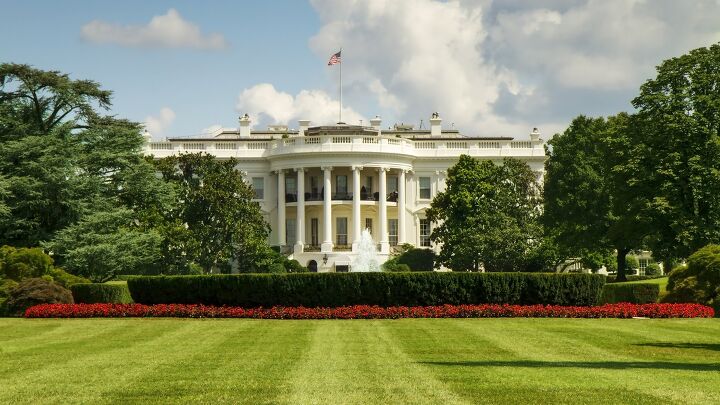New White House Program Provides Funding to Help Smaller Auto Suppliers Make Transition to EVs

The federal government has pumped billions into EV incentives and charging infrastructure initiatives, and now, it’s automotive suppliers’ turn at the bank. The Biden administration recently announced more than $100 million in funding to help smaller suppliers adapt to the changing automotive world.
Around half of that money comes from the Department of Energy to help internal combustion engine suppliers retool to make EV parts. Another $50 million provides grants of up to $300,000 for the companies to make their factories greener and improve cybersecurity.
Suppliers have been in a tight spot for years as materials and labor costs have skyrocketed. Additionally, while automakers’ production volume has grown since the barren days of the COVID-19 pandemic, they aren’t making cars in the same numbers they did before, reducing revenues for the companies that supply them. Many suppliers also felt the squeeze during last year’s UAW strike, which shut down some of the factories that were making popular vehicle models.
As part of the program, the DOE will also work with the Small Business Administration to provide business coaching and help companies reduce risk across their operations. The SBA will create a pilot program to offer credit lines to small businesses, and the Biden administration will use an existing program to help small suppliers dip into millions in private equity dollars. Those efforts are in addition to a separate fund that aims to assist with workforce and technology training to better equip manufacturing workers as factory lines increasingly shift to building EVs.
[Image: Bok David via Shutterstock]
Become a TTAC insider. Get the latest news, features, TTAC takes, and everything else that gets to the truth about cars first by subscribing to our newsletter.

Chris grew up in, under, and around cars, but took the long way around to becoming an automotive writer. After a career in technology consulting and a trip through business school, Chris began writing about the automotive industry as a way to reconnect with his passion and get behind the wheel of a new car every week. He focuses on taking complex industry stories and making them digestible by any reader. Just don’t expect him to stay away from high-mileage Porsches.
More by Chris Teague
Latest Car Reviews
Read moreLatest Product Reviews
Read moreRecent Comments
- Teddyc73 As I asked earlier under another article, when did "segment" or "class" become "space"? Does using that term make one feel more sophisticated? If GM's products in other segments...I mean "space" is more profitable then sedans then why shouldn't they discontinue it.
- Robert Absolutely!!! I hate SUV's , I like the better gas milage and better ride and better handling!! Can't take a SUV 55mph into a highway exit ramp! I can in my Malibu and there's more than enough room for 5 and trunk is plenty big enough for me!
- Teddyc73 Since when did automakers or car companies become "OEM". Probably about the same time "segment" or "class" became "space". I wish there were more sedans. I would like an American sedan. However, as others have stated, if they don't sell in large enough quantities to be profitable the automakers...I mean, "OEMs" aren't going to build them. It's simple business.
- Varezhka I have still yet to see a Malibu on the road that didn't have a rental sticker. So yeah, GM probably lost money on every one they sold but kept it to boost their CAFE numbers.I'm personally happy that I no longer have to dread being "upgraded" to a Maxima or a Malibu anymore. And thankfully Altima is also on its way out.
- Tassos Under incompetent, affirmative action hire Mary Barra, GM has been shooting itself in the foot on a daily basis.Whether the Malibu cancellation has been one of these shootings is NOT obvious at all.GM should be run as a PROFITABLE BUSINESS and NOT as an outfit that satisfies everybody and his mother in law's pet preferences.IF the Malibu was UNPROFITABLE, it SHOULD be canceled.More generally, if its SEGMENT is Unprofitable, and HALF the makers cancel their midsize sedans, not only will it lead to the SURVIVAL OF THE FITTEST ones, but the survivors will obviously be more profitable if the LOSERS were kept being produced and the SMALL PIE of midsize sedans would yield slim pickings for every participant.SO NO, I APPROVE of the demise of the unprofitable Malibu, and hope Nissan does the same to the Altima, Hyundai with the SOnata, Mazda with the Mazda 6, and as many others as it takes to make the REMAINING players, like the Excellent, sporty Accord and the Bulletproof Reliable, cheap to maintain CAMRY, more profitable and affordable.


































Comments
Join the conversation
Wild to me the US sent like $100B overseas for other peoples wars while we clammer over .1% of that money being used to promote EVs in our country.
No confusion on my end, Ghost. The Government has zero role in job creation outside of the legitimate opportunities' created by Government going about it's responsibilities, namely keeping the American people and territory safe from foreign intrusion. Of course, they're failing epically at that but that's a different topic. The American free enterprise system is what enables job creation. Government's role is to stay out of the way of that system, but they seem incapable of doing so. Oil & Gas exploration is just one example. If a National Job Policy is what you're looking for, there are other countries that will be happy to accept your application for residency.